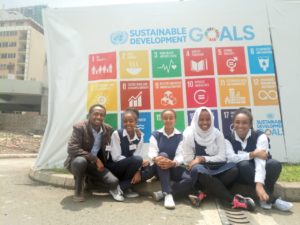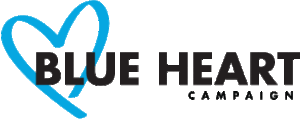CHEMUN is a THIMUN-affiliated conference run each year in Chennai, India. They have embraced the SDGs and MUN Impact with gusto! They share some great observations about MUN Impact, the SDGs, and adding more action and activism to their annual conference.
Why did your MUN club choose this particular SDG to focus on? Was it hard to convince people to get on board with a plan like this? Easy? Why?
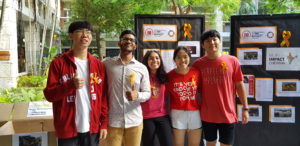 We chose to focus on SDG 1 because of its omnipresence throughout Indian society. The amount of exposure to the global issue of poverty which we have in India has definitely played role in our approach to tackling this issue. Because of the nature of the Indian environment, others also had a clear picture of the issue in their minds, which helped us further promote awareness of the issue and its adverse effects. Therefore, it wasn’t too difficult to get others on board with our idea because their prior knowledge of the issue motivated them to contribute in any way they saw possible.
We chose to focus on SDG 1 because of its omnipresence throughout Indian society. The amount of exposure to the global issue of poverty which we have in India has definitely played role in our approach to tackling this issue. Because of the nature of the Indian environment, others also had a clear picture of the issue in their minds, which helped us further promote awareness of the issue and its adverse effects. Therefore, it wasn’t too difficult to get others on board with our idea because their prior knowledge of the issue motivated them to contribute in any way they saw possible.
How did you embed this SDG action into your MUN club and/or conference?
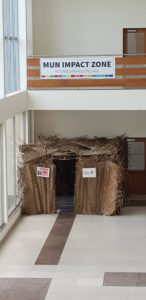
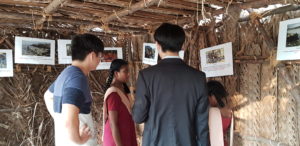 In preparing for the MUN Impact Zone at our school’s MUN conference (CHEMUN), we decided to build a hut similar to those that many poor families in Chennai live in. Our aim of recreating a real hut was to allow delegates and advisors participating in our CHEMUN conference to experience the lifestyle of impoverished communities in India in order to raise their awareness and further their understanding of the issue.
In preparing for the MUN Impact Zone at our school’s MUN conference (CHEMUN), we decided to build a hut similar to those that many poor families in Chennai live in. Our aim of recreating a real hut was to allow delegates and advisors participating in our CHEMUN conference to experience the lifestyle of impoverished communities in India in order to raise their awareness and further their understanding of the issue.
With the help of local builders as well as some of our school’s students, we successfully built our hut with wooden poles, natural fiber ropes, and dried woven coconut tree fronds. Within the hut, we included the SDG 1 indicators and targets for visitors to learn more about poverty from a global standpoint.
Is this an ongoing action? Something your club will continue in the future or an action that has not been fully completed yet?
While our work with the hut has finished, we are hoping to begin implementing more projects to tackle SDG 1 which will be more sustainable. In the future, we plan on combining SDG 1 and SDG 4 to create a project which tackles the need for quality education and how it consequently tackles the issue of poverty.
What challenges did you face in undertaking this action?
One obstacle that we faced during the construction process of the hut was the language barrier between us and the local builders. As many of us didn’t share a common language with the builders, it was challenging for us to ask questions about a specific technique or to communicate in general. However, the obstacle turned out to be easily surmountable as after everyone learned the basic techniques, with the help of our supervising teacher and some of our students that could speak Tamil, we could easily communicate with and learn from the builders using body language.
Another challenge that we encountered was concerning the maintenance of the hut before the CHEMUN conference. We, in fact, became aware of this challenge when we were building the hut as we were reminded that the location we were building the hut at needed to be available for use before the conference. In other words, we had to store the finished hut in another space and move it back to where we originally planned it to be right before the conference. To overcome this challenge, we decided to build each wall separate from each other so that we could easily deconstruct, store, and reconstruct the hut.
Maintaining the MUN impact zone during the CHEMUN conference was another obstacle the group faced. As only 1 member of the club was able to participate in the maintenance, it was challenging to attract student delegate’s attention towards the purpose of our team and the hut.
What appeared to be highlights of this action? Were you pleasantly surprised at any of the results?
The highlights of our existing projects in the realm of SDG 1 was the visit to the slum. The slum visit was a rather interesting experience due to the discordance between our expectations and what we saw. Obviously, our expectation was that the people living in the slum are poor and are in need some kind of financial aid to survive and thrive in their environments. Though, we found that the community in the slum are not actually living in poverty; this surprised us because when we thought of people living under poverty in India, the slum people appeared to be experiencing the highest level of poverty in Chennai. Another surprising fact was that the people tended to be satisfied with their economic status, so our vision to empower them economically was incongruent with their will to grow.
In terms of PROCESS, what would you recommend to other MUN clubs looking to undertake an action similar to yours? What steps, do you feel, are critically important to include?
In terms of process, it is crucial to at least partially understand the problem before undertaking an action. Ways to understand the problem may be gaining in-field experience rather than merely inferring from statistical figures; though numbers indicate the prevalence of the issue, understanding the problem itself requires an approach that will keep you personally engaged to the situation. One thing to keep in mind while identifying the issue is to discuss your stance on the issue: where you, your experience and expertise, will fit in the solving an aspect of the issue.
Think of solutions to SDG problems through the lens of resolution drafting. In the process of drafting a resolution, a delegate would look at sub-issues to the topic and take different approaches in addressing the same issue. For instance, a common solution in a resolution is educating the public of the topic: do the same for your SDG, create awareness of the topic in your school community. Additionally, collecting donations is another common solution. For SDG1, we collected donations of merchandises that we sent to school children and households who do may not afford such toys, books, and household items. Therefore, take a multifaceted approach to your solution.
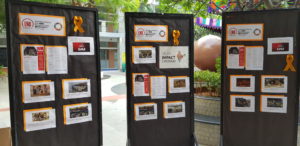
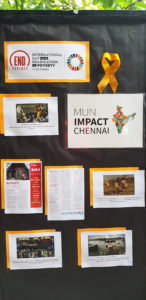
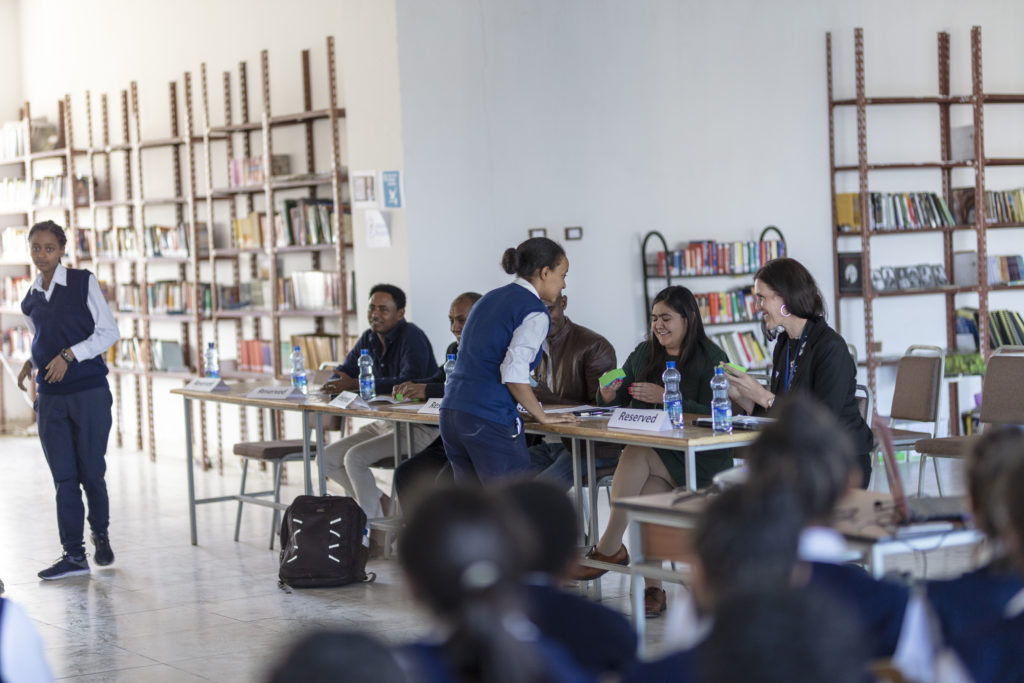
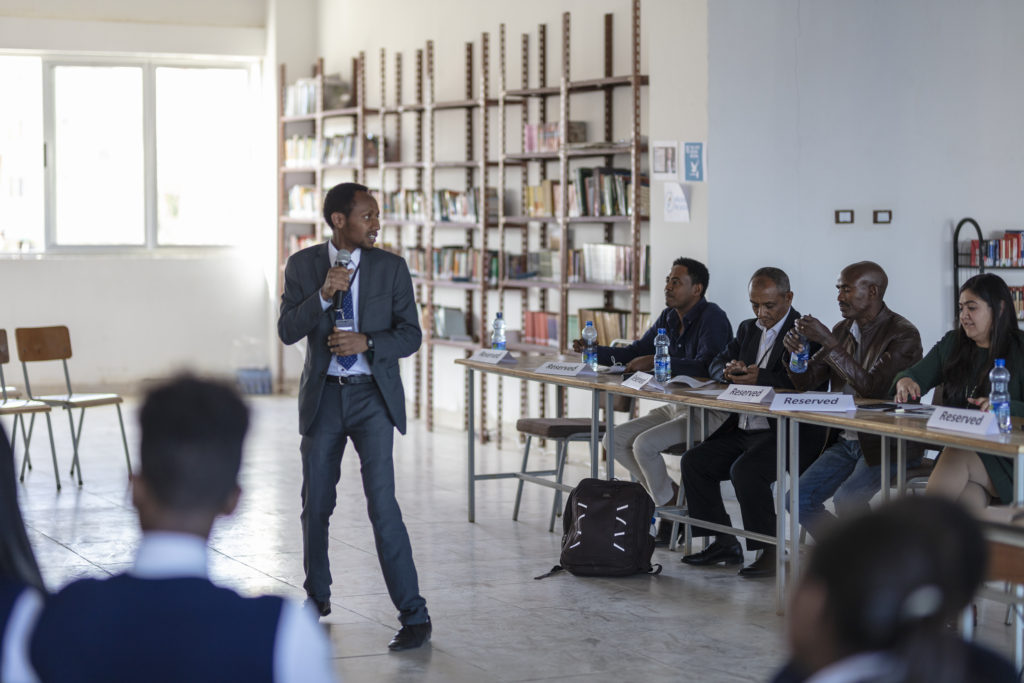
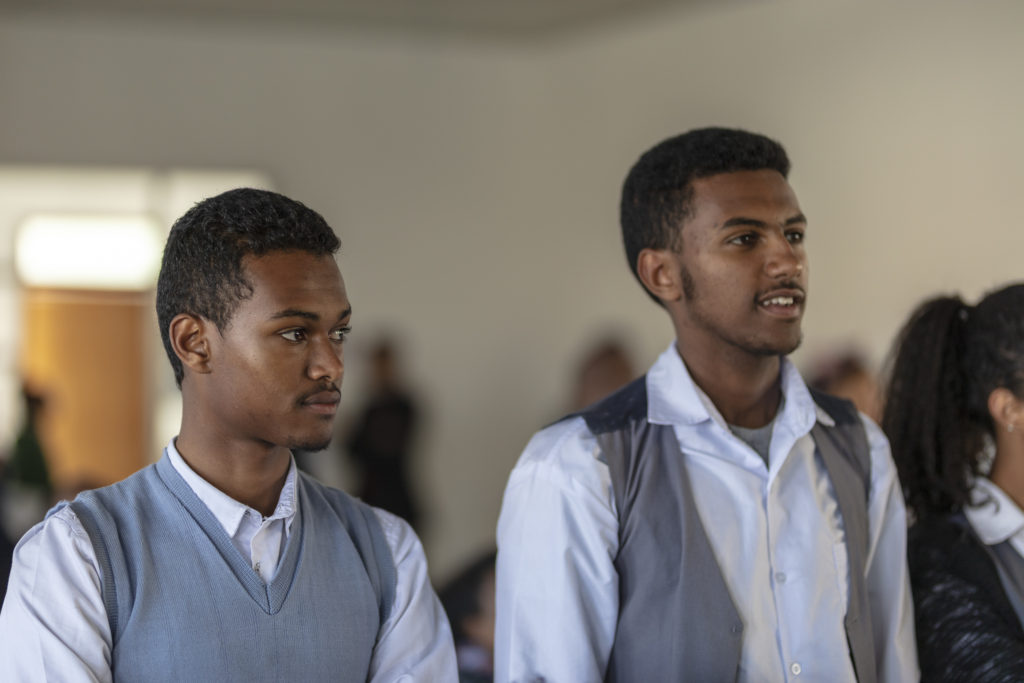
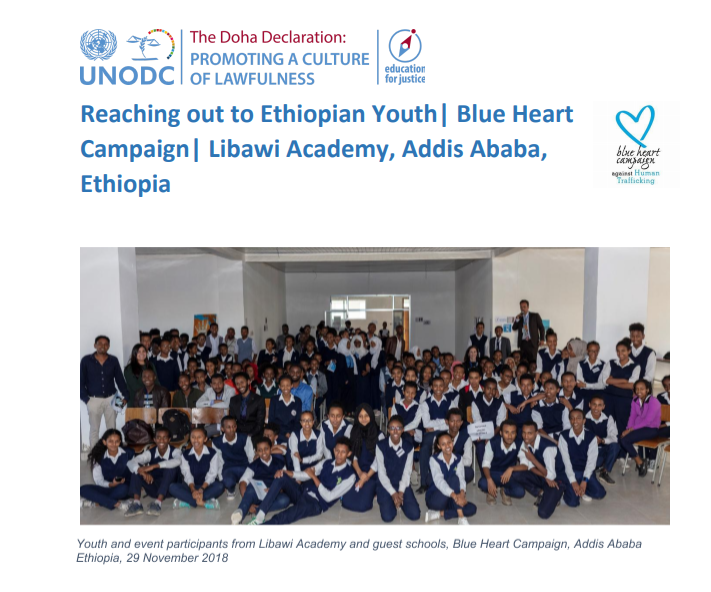
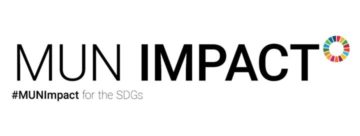
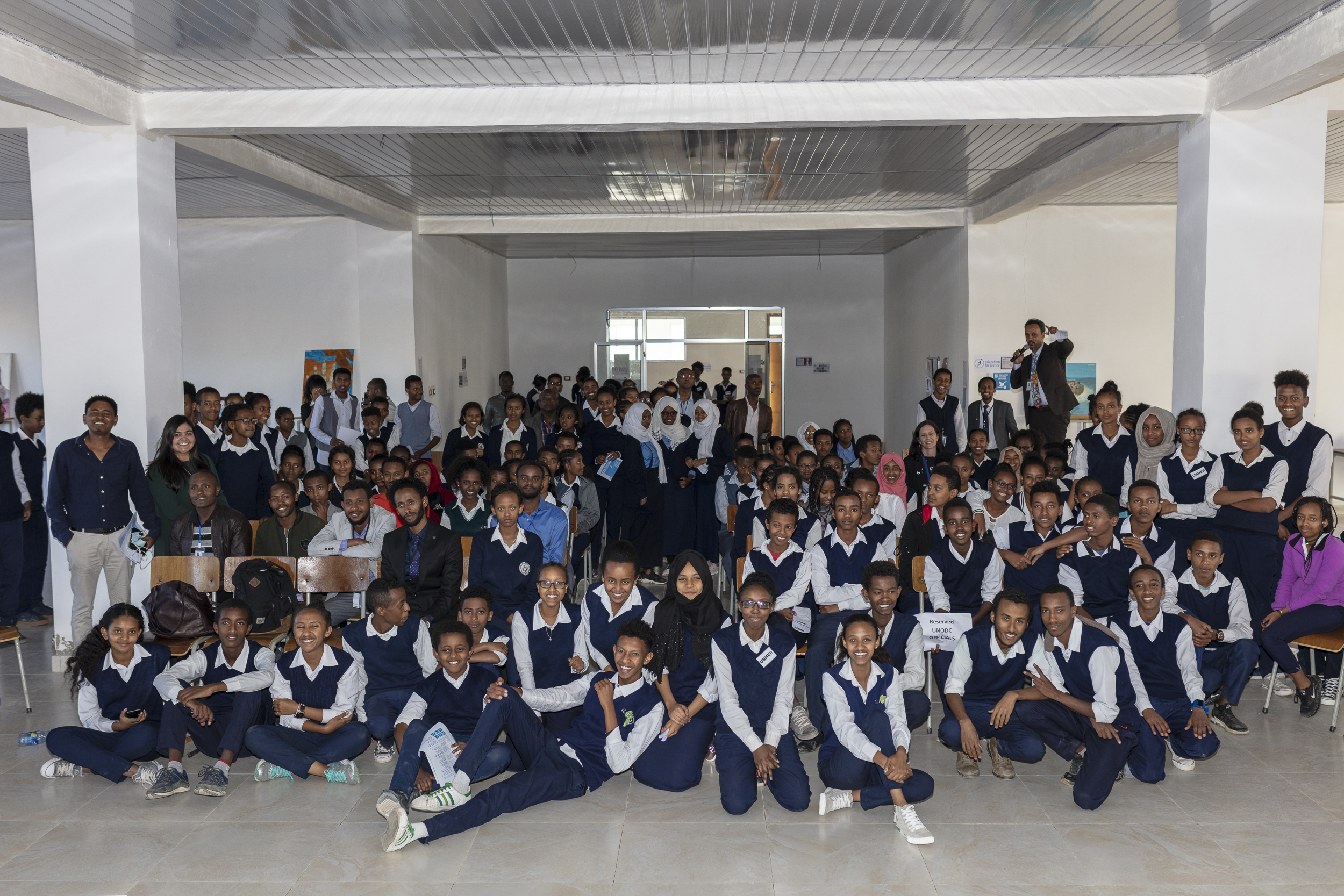

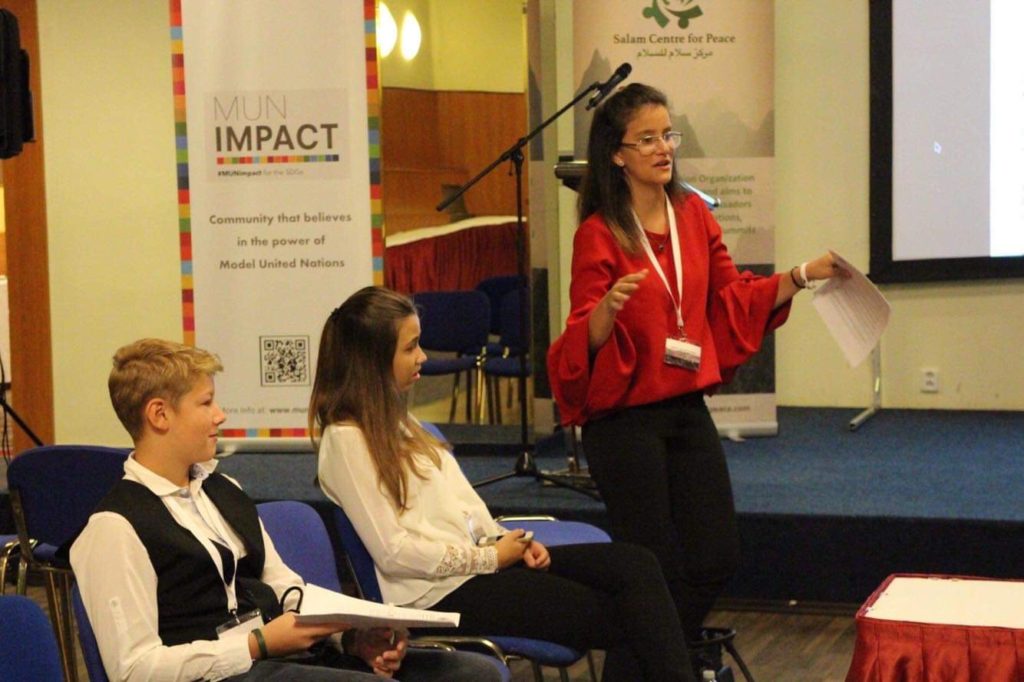
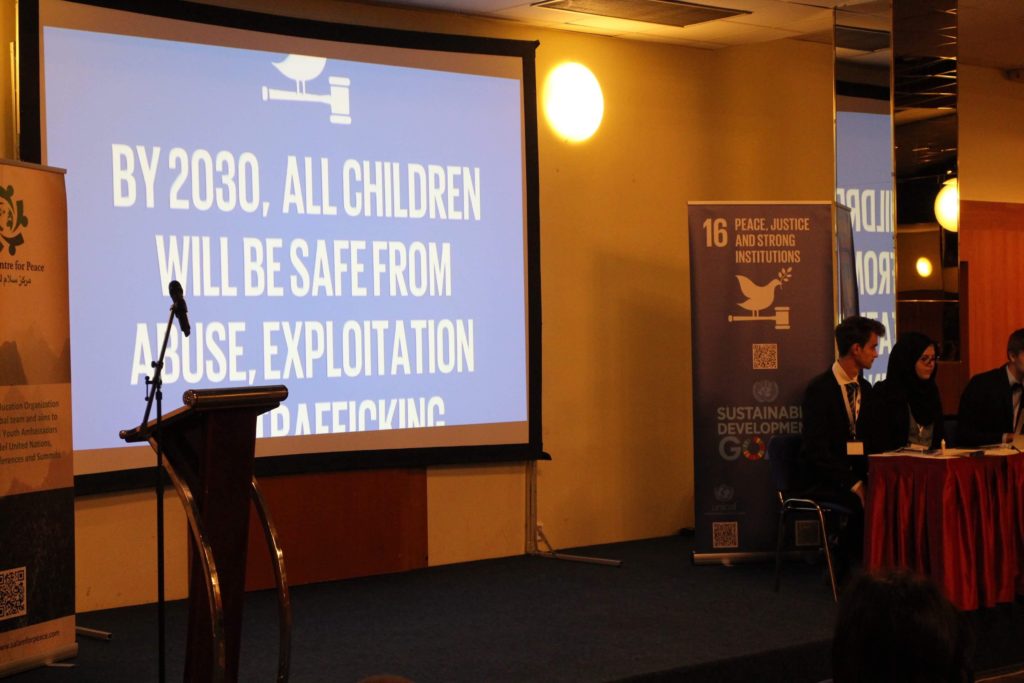

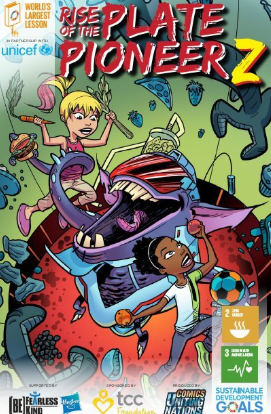
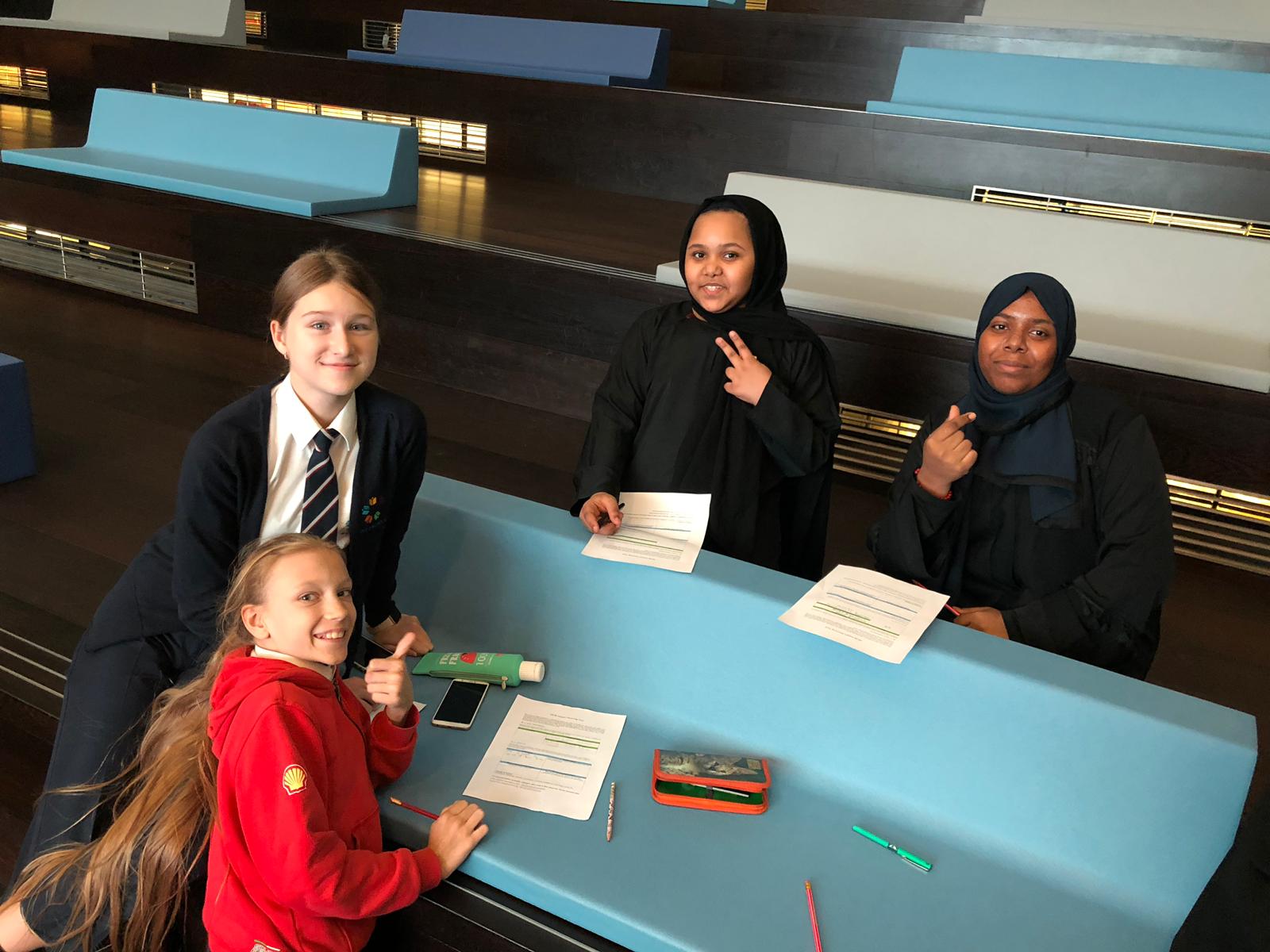
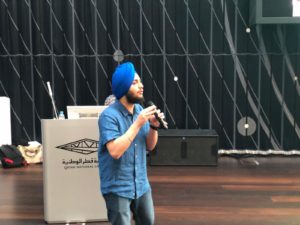
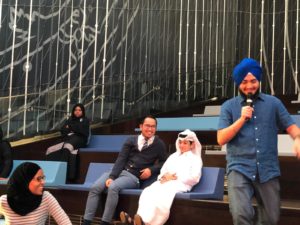
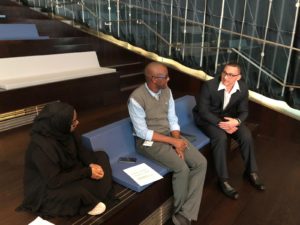
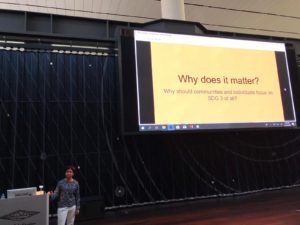
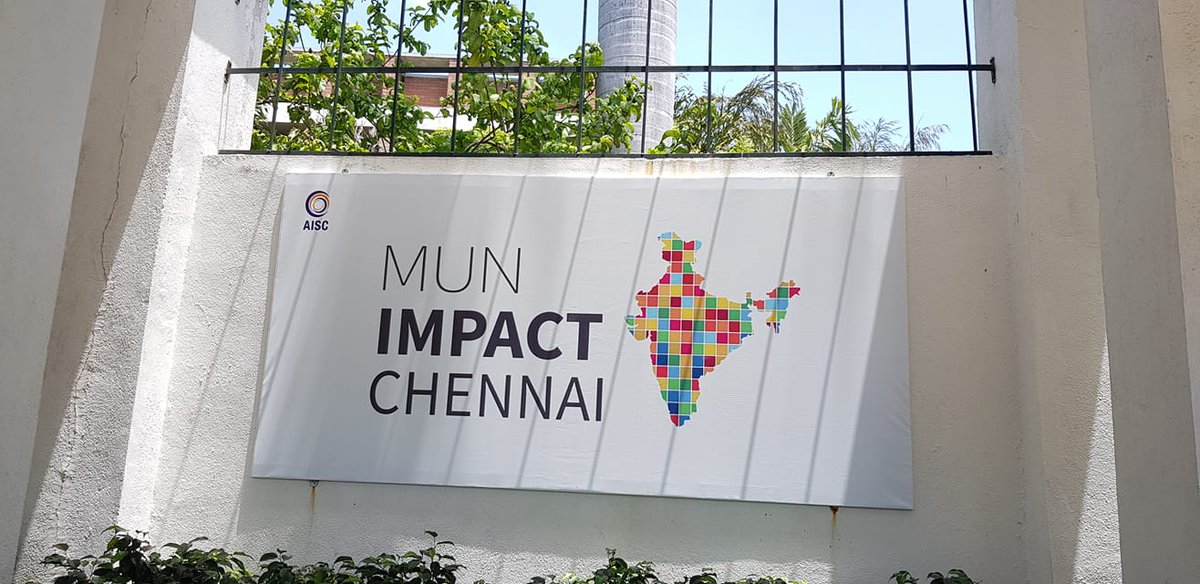
 We chose to focus on SDG 1 because of its omnipresence throughout Indian society. The amount of exposure to the global issue of poverty which we have in India has definitely played role in our approach to tackling this issue. Because of the nature of the Indian environment, others also had a clear picture of the issue in their minds, which helped us further promote awareness of the issue and its adverse effects. Therefore, it wasn’t too difficult to get others on board with our idea because their prior knowledge of the issue motivated them to contribute in any way they saw possible.
We chose to focus on SDG 1 because of its omnipresence throughout Indian society. The amount of exposure to the global issue of poverty which we have in India has definitely played role in our approach to tackling this issue. Because of the nature of the Indian environment, others also had a clear picture of the issue in their minds, which helped us further promote awareness of the issue and its adverse effects. Therefore, it wasn’t too difficult to get others on board with our idea because their prior knowledge of the issue motivated them to contribute in any way they saw possible.
 In preparing for the MUN Impact Zone at our school’s MUN conference (CHEMUN), we decided to build a hut similar to those that many poor families in Chennai live in. Our aim of recreating a real hut was to allow delegates and advisors participating in our CHEMUN conference to experience the lifestyle of impoverished communities in India in order to raise their awareness and further their understanding of the issue.
In preparing for the MUN Impact Zone at our school’s MUN conference (CHEMUN), we decided to build a hut similar to those that many poor families in Chennai live in. Our aim of recreating a real hut was to allow delegates and advisors participating in our CHEMUN conference to experience the lifestyle of impoverished communities in India in order to raise their awareness and further their understanding of the issue.

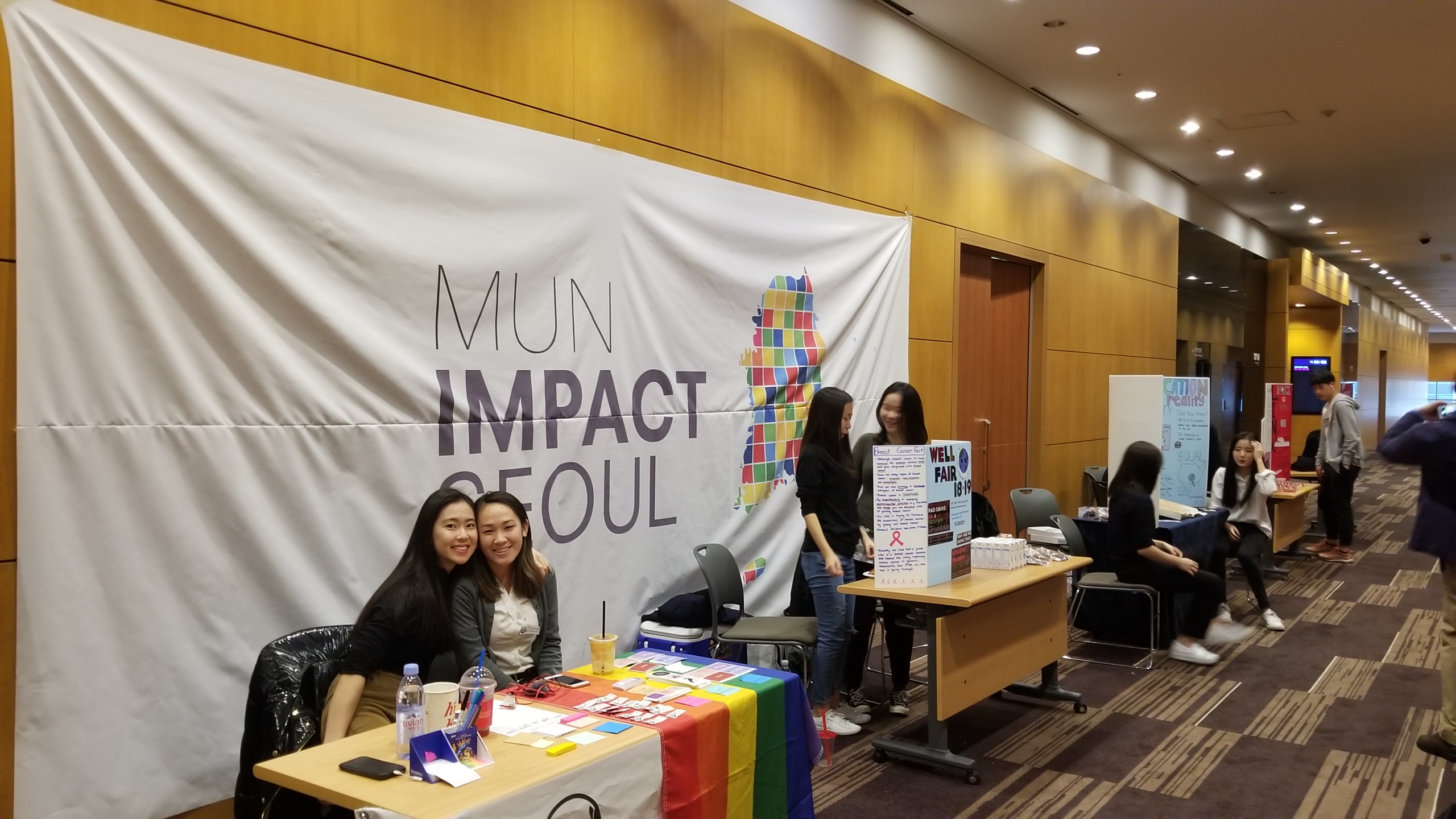
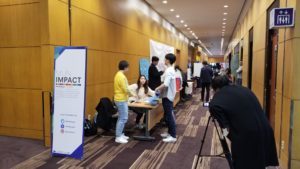 The 21st Annual Seoul Model United Nations was hosted by the Korea International School from November 9-11, 2018 at the COEX Convention Center with participants from over a dozen countries. The Secretariat invited several clubs from international schools near Seoul that work to achieve the UN Sustainable Development Goals to the “MUN Impact Zone.” In the Zone, the student leaders had an opportunity to share their work to contribute to our local communities and join the global dialogue for change. SEOMUN participants had the opportunity to browse through each club booths as they learned the drives of the club leaders in doing what they do. The Secretariat hopes that the participants will return back home and begin taking action to combat the perils of indifference (the conference theme).
The 21st Annual Seoul Model United Nations was hosted by the Korea International School from November 9-11, 2018 at the COEX Convention Center with participants from over a dozen countries. The Secretariat invited several clubs from international schools near Seoul that work to achieve the UN Sustainable Development Goals to the “MUN Impact Zone.” In the Zone, the student leaders had an opportunity to share their work to contribute to our local communities and join the global dialogue for change. SEOMUN participants had the opportunity to browse through each club booths as they learned the drives of the club leaders in doing what they do. The Secretariat hopes that the participants will return back home and begin taking action to combat the perils of indifference (the conference theme).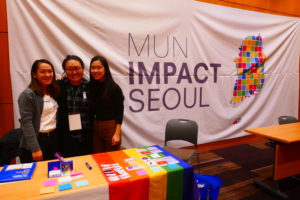
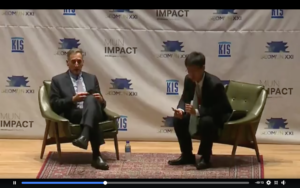
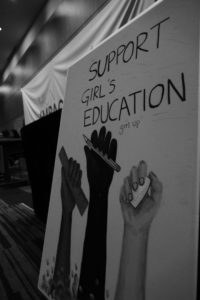
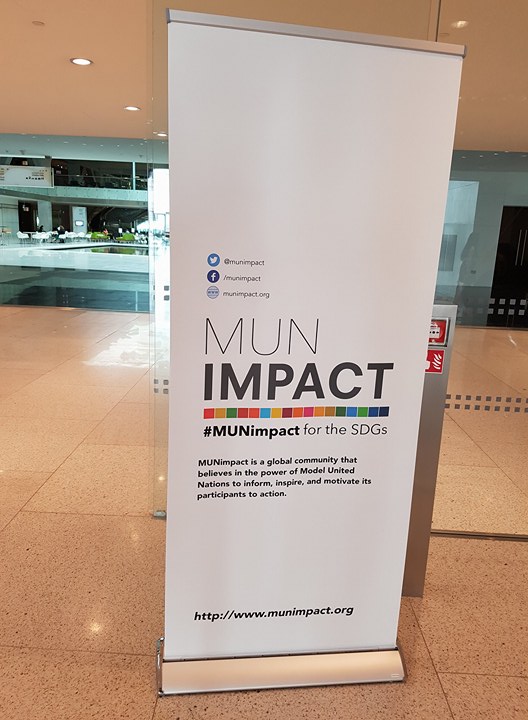
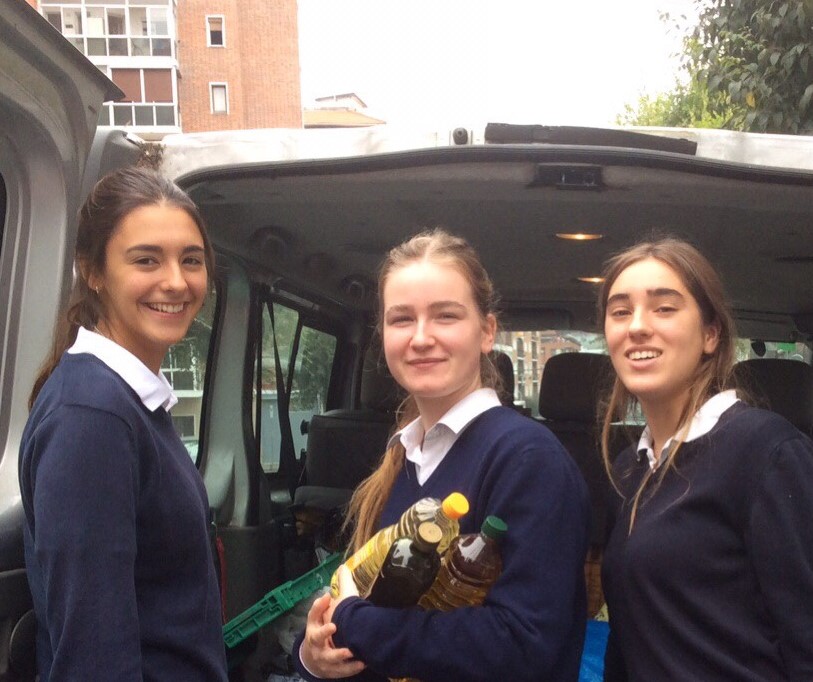
 We are happy to share that the Club’s second MUN Impact project is being an overwhelming success. Over 200kg of dietary products have already been collected and distributed among the most needed in our city. The campaign consists of a monthly school-wide collection of the basic food products. This way, we aim to collaborate on the achievement of the 2nd SDG, “Zero Hunger”. The youngest students’ enthusiasm for the campaign together with the great results gotten, has boosted our motivation. We’re even more enthusiastic now!
We are happy to share that the Club’s second MUN Impact project is being an overwhelming success. Over 200kg of dietary products have already been collected and distributed among the most needed in our city. The campaign consists of a monthly school-wide collection of the basic food products. This way, we aim to collaborate on the achievement of the 2nd SDG, “Zero Hunger”. The youngest students’ enthusiasm for the campaign together with the great results gotten, has boosted our motivation. We’re even more enthusiastic now!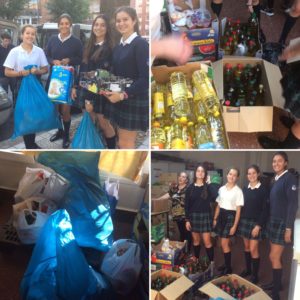
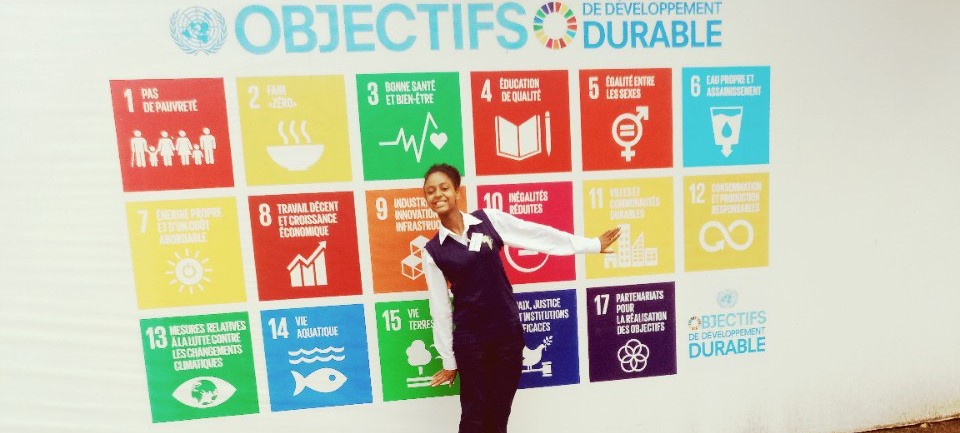
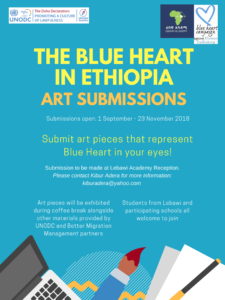 **Update** Lebawi Academy will be hosting a poster contest that captures the spirit of Blue Heart. Art submissions will be accepted at Lebawi Academy reception and shared during the Blue Heart Awareness event on November 29th. Please email Kubur Adera at kiburadera@yahoo.com. You can find the event registration
**Update** Lebawi Academy will be hosting a poster contest that captures the spirit of Blue Heart. Art submissions will be accepted at Lebawi Academy reception and shared during the Blue Heart Awareness event on November 29th. Please email Kubur Adera at kiburadera@yahoo.com. You can find the event registration